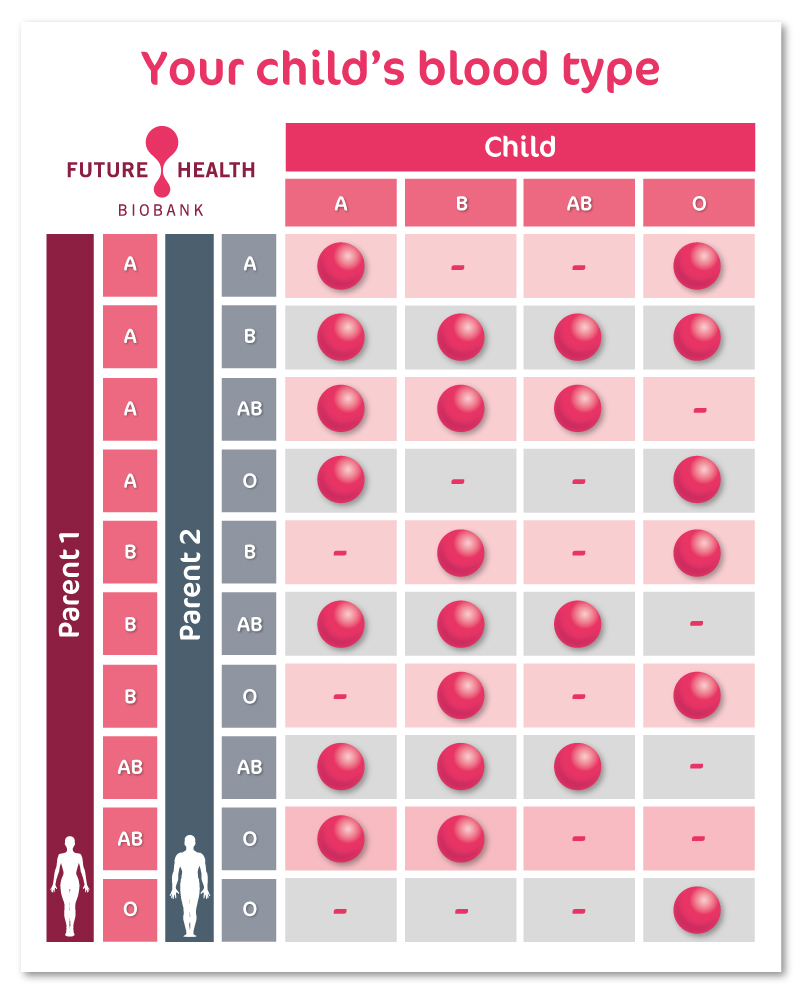 Source: bing.com
Source: bing.comAs a new mom, you might be curious about when your baby will develop a blood type. It’s a common question that many parents ask, and it’s understandable why. Understanding your baby’s blood type can be important in case of a medical emergency, and it can also help you better understand your baby’s health.
Table of Contents
When Does A Baby Develop A Blood Type?
A baby’s blood type is determined by the genes they inherit from their parents. Typically, a baby’s blood type is determined at birth. However, the process of developing a blood type actually begins long before birth, during the first trimester of pregnancy.
During the first trimester, the baby’s blood cells are formed in the yolk sac. These cells contain hemoglobin, which is a protein that carries oxygen in the blood. As the baby grows, the liver takes over the production of blood cells. By the end of the first trimester, the baby’s blood type is already determined.
How Is Blood Type Determined?
Blood type is determined by the presence or absence of certain proteins, called antigens, on the surface of red blood cells. There are four main blood types: A, B, AB, and O.
Each blood type is determined by the presence or absence of two antigens: antigen A and antigen B. A person with type A blood has antigen A on their red blood cells, while a person with type B blood has antigen B. A person with type AB blood has both antigens, and a person with type O blood has neither.
In addition to antigens, blood type is also determined by the presence or absence of a third antigen, called the Rh factor. People who have this antigen are Rh positive, while those who do not are Rh negative.
What Happens If A Baby’s Blood Type Is Different From Its Parents?
In some cases, a baby’s blood type may be different from its parents. This can happen when the parents have different blood types, and the baby inherits a combination of their genes that results in a different blood type.
In most cases, this is not a problem. However, if the baby’s blood type is Rh positive and the mother’s blood type is Rh negative, there can be complications. If the baby’s blood enters the mother’s bloodstream during pregnancy or delivery, the mother’s immune system may produce antibodies that attack the baby’s red blood cells. This can lead to a condition called hemolytic disease of the newborn, which can be life-threatening if not treated promptly.
How Is Blood Type Tested?
After your baby is born, their blood type will be tested as part of routine newborn screening. This involves a simple blood test, usually done by pricking the baby’s heel to collect a small sample of blood.
If you have concerns about your baby’s blood type, or if you or your partner have a rare blood type or a history of blood transfusions, you may want to talk to your doctor about getting tested during pregnancy.
Conclusion
In conclusion, a baby’s blood type is determined by the genes they inherit from their parents, and the process of developing a blood type begins during the first trimester of pregnancy. Blood type is important to understand in case of a medical emergency, and it is tested as part of routine newborn screening. If you have any concerns about your baby’s blood type, talk to your doctor.
Frequently Asked Questions
Q: Can a baby’s blood type change?
A: No, a baby’s blood type is determined at birth and does not change over time.
Q: Is blood type inherited from both parents?
A: Yes, a baby’s blood type is determined by the genes they inherit from both parents.
Q: Can a baby’s blood type be different from its siblings?
A: Yes, a baby’s blood type can be different from its siblings if they inherit different combinations of genes from their parents.
Q: How common is it for a baby’s blood type to be different from its parents?
A: It is not uncommon for a baby’s blood type to be different from its parents if the parents have different blood types.
Q: Can a baby’s blood type affect breastfeeding?
A: No, a baby’s blood type does not affect breastfeeding.
